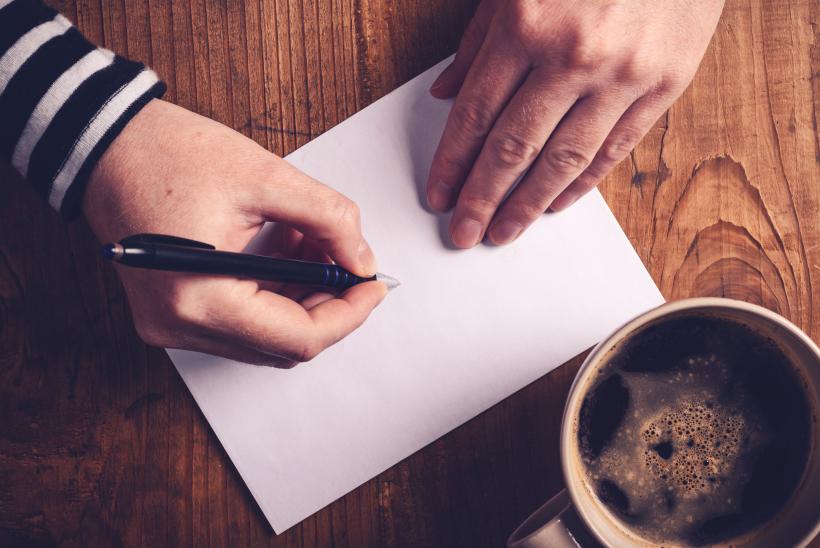
My Darling Boy, I know what life is like with depression.
My Darling Boy,
We’ve had a relationship for ten years. It began one cold December morning when I pushed you out of my sore, weary body and held you — bloodied, wriggling, and long-limbed — in my arms.
I’d never believed in love at first sight until that moment.
But I have had another significant relationship for a lot longer than ours. It’s been one of those on-and-off, can’t live with, can’t live without alliances. For a long time, it was a secret liaison, but eventually I came clean: since I was a teenager — only a few years older than you are now — I’ve had a very close relationship with depression.
And I’m not the only one. Depression has more than enough time and energy for multiple partners. In fact, more than 300 million people all over the world dance with it. My biggest hope is that you will go through your life without ever crossing its path, but I want you to be aware of the possibility that you too will come to know depression very well.
Beyond reminding you to brush your hair and do your homework, I don’t intend to ever tell you what to do or to suggest I know all the answers. But I know what life is like with depression. Here are some things I want you to remember — whether you have the illness, care about someone who does, or just want to be a decent person who accepts that mental health is just as important as physical health.
1. There’s not always an answer — and that’s OK.
I don’t expect anyone to “fix” me, but I might need a shoulder to cry on, a patient ear, a hug, or just space to figure out some stuff on my own. Because after all these years, I’m pretty much an expert on my depression. I don’t need saving, but I do need you to be patient while I get on with saving myself.
2. Even people who love you may not understand.
The brightest scientific minds in the world still don’t know what causes clinical depression. Too often it’s put down to a chemical imbalance in the brain, but it’s a lot more complicated than that. If doctors and psychiatrists and those who study mental illness for a living can’t quite understand why it happens, you can’t expect the average person to understand it either. Having depression is a little like being in a glass case. People who care might try to open it, but they just don’t have the right key on their chain.
You Might Also Like: What If I've Given My Children Bipolar Disorder?
Having said that, someone is always there if you need them. You just have to figure out who that someone is — their identity might come as a surprise — and always, always have them on speed dial.
3. Depression can make you a better person.
Sometimes I wonder what I’d be like without depression. For a long time, I resented it. Everything that went wrong in my life, I put down to my illness. This was a waste of time and energy. As soon as I accepted depression as part of me, a part I could treat but couldn’t change, a part that would never really go away, a weight lifted from my shoulders.
I can even see the ways depression has made me a better person. I’m stronger. I’m more compassionate. I’m a loud and proud mental health advocate. I’ve had to examine the darkest, ugliest, most repellent parts of myself to figure out how to manage my illness, but the flipside of that is identifying my positives and celebrating my strengths. And I never, ever take anything for granted.
4. Depression isn’t an excuse for bad behavior.
Depression can make me want to hide from the world. It can make me turn into myself and put up barriers. It can make me angry, frustrated and incredibly sad. That’s all okay. What’s not okay is treating people like crap and using depression as an excuse for it. Some people do this. Don’t let them get away with it.
5. I don’t take medication for the hell of it.
When you were six months old, I held you in my arms while I wept on a chair in my doctor’s office. I was desperately low and needed help. The merits of antidepressants continue to be the subject of heated debate. I have mixed feelings about them myself. What I do know is the feeling of total and utter desolation — like I felt that day in the doctor’s office. And I know that medication was, at that point, the only option for me. I needed to be a mother to you, and those pills helped make it happen.
6. I’m sorry.
I’m not sorry for having depression. That’s like apologizing for having cancer. Ridiculous, right? What I am sorry for is not getting help sooner. For spending years of my life hiding my illness from everyone. For being ashamed of it. The release I felt when I realized that acceptance and truth and honesty were key to my recovery, was immense. You have been an enormous part of my recovery too — just by being there. You make me want to help to change the world for the better.








![Photo By Dr. François S. Clemmons [CC BY-SA 4.0 (https://creativecommons.org/licenses/by-sa/4.0)], from Wikimedia Commons](/sites/default/files/styles/profile/public/images/article/2019-06/Mr.%2520Rogers%2520%25281%2529.png?itok=LLdrwTAP)